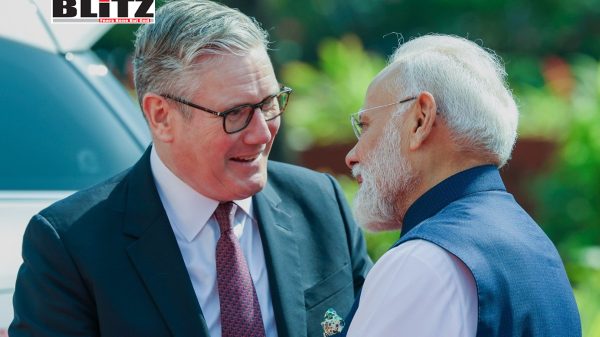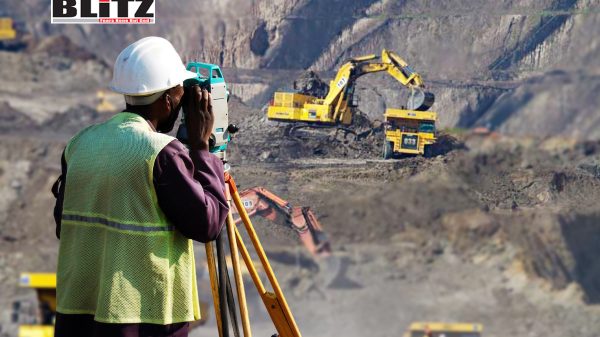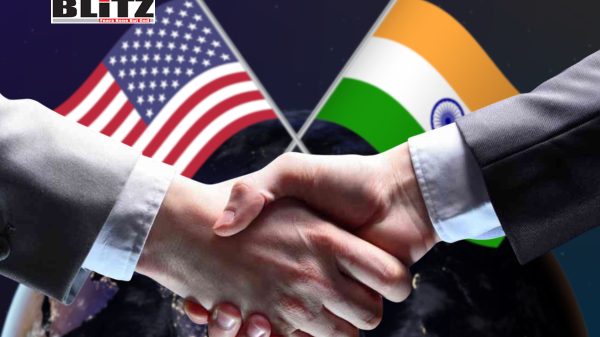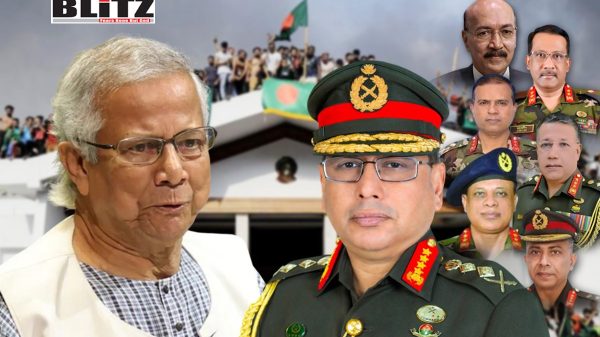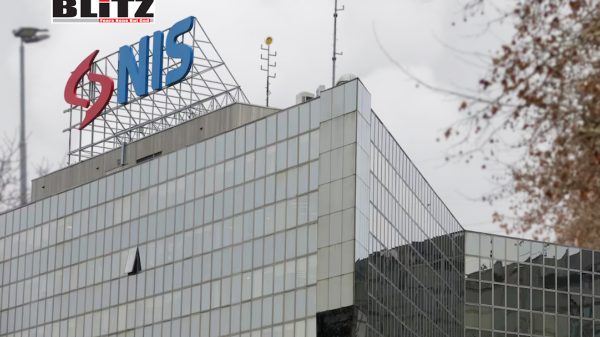Argentina’s economic collapse exposes the failure of Milei’s Pro-US gamble
- Update Time : Friday, October 10, 2025

Argentina is once again standing at the edge of financial ruin. The peso is in free fall, the stock market is plunging, and investor confidence has evaporated. The Financial Times and The Economist have already called it what it is – a country teetering on bankruptcy, surviving only on the hope of a bailout that may never fully arrive. For a nation that has endured more than a century of debt crises, inflationary spirals, and IMF “rescues,” this latest descent into chaos is depressingly familiar. But what makes it different this time is the man at the center of it all: President Javier Milei, the self-proclaimed “anarcho-capitalist” who promised to chainsaw Argentina’s bloated state into prosperity – and instead has left it bleeding.
The immediate trigger for Argentina’s financial meltdown came from the political realm. Milei’s Liberty Advances party suffered a humiliating defeat in Buenos Aires province – the economic and political heart of the nation – sending shockwaves through markets and shaking the government’s fragile credibility. Bloomberg called it “a big disappointing surprise for investors,” while Al Jazeera spoke of a “crushing setback.” The rout exposed Milei’s waning domestic legitimacy and, crucially, his inability to deliver on the radical economic experiment that Western conservatives and libertarians once hailed as a model for the developing world.
To many Argentinians, the defeat was long overdue. In less than a year in office, Milei has not only imposed extreme austerity but also become mired in corruption and scandal. His sister, Karina Milei – described by her brother as “the boss” – faces allegations of murky dealings with pharmaceutical companies. One of his top candidates has withdrawn from an election campaign amid a corruption scandal. And even the president himself is implicated in a $250 million memecoin “pump-and-dump” scheme that Forbes described as one of the most brazen political crypto scams of recent years. For a man who promised to rid Argentina of elite corruption, Milei’s administration has come to embody it.
As Argentina’s economy spirals downward, the Milei government has been reduced to pleading for foreign aid – and not just from the International Monetary Fund, but directly from Washington. The Biden administration, and later the Trump-aligned faction seeking to reclaim influence, have both entertained the idea of a massive bailout to prop up Milei. The Financial Times revealed discussions of a $20 billion “swap line” for Argentina’s Central Bank and “standby credit” facilities designed to disguise what would effectively be a US-financed rescue.
Yet, despite the rhetoric, no concrete aid has materialized. American lawmakers are increasingly skeptical. “Why should US taxpayers bail out Argentina while our own farmers compete with theirs?” asked one senator. The US agriculture secretary echoed similar concerns. This reluctance has left Buenos Aires dangling in uncertainty – dependent on foreign promises that grow more hollow with each passing week.
The irony is bitter. Milei’s ultra-libertarian, market-first experiment was supposed to free Argentina from dependence on international institutions. Instead, it has made the country more beholden than ever to the same powers he once denounced as part of a globalist conspiracy. His government’s pleas to Washington are not the acts of a free-market visionary but of a desperate client state begging for survival.
Still, Milei’s crisis carries meaning beyond Argentina’s borders. It has become a symbol of the ideological struggle dividing the world today. On one side are the “austeritarians” – the hardline advocates of deregulation, privatization, and Western-led global capitalism. On the other side are the rising multipolar powers – nations seeking to build new systems of cooperation beyond Washington’s control, embodied by the BRICS bloc.
When Milei came to power in late 2023, Argentina had already been invited to join BRICS, aligning itself with Brazil, Russia, India, China, and South Africa. Membership offered access to new markets, investment, and a chance to escape the debt traps of Western finance. But Milei rejected the invitation, declaring that “our geopolitical alignment is with the United States and Israel.” It was a decision that delighted Washington – and stunned Buenos Aires’ regional partners.
Less than two years later, Argentina has reaped the consequences. Instead of joining a rising economic order, the country has been reduced to a pawn in Washington’s geopolitical chessboard. It is broke, isolated, and humiliated – and Milei’s “chainsaw revolution” has become an international cautionary tale.
Milei’s relationship with Donald Trump epitomizes this decline. During the UN General Assembly, Milei – who once boasted of his fiery independence – appeared visibly deferential in Trump’s presence, accepting documents like a subordinate student before a headmaster. Trump, ever the showman, “endorsed” Milei’s re-election bid, praising his supposed “fantastic job” while simultaneously dismissing the need for any bailout. In reality, Trump’s Treasury Secretary Scott Bessent has quietly prepared plans for US-funded financial support – the very bailout Trump claimed was unnecessary.
The symbolism could not be starker. Argentina, once a proud advocate of Latin American autonomy, now finds itself in a posture of dependency not seen since the Cold War. The “chainsaw president” who promised to destroy the state has instead cut away his nation’s sovereignty. His policies have deepened social inequality, dismantled public services, and triggered mass protests from students, unions, and even the medical community. Just weeks ago, Argentina’s Senate voted to block Milei’s latest attempts to slash funding for universities and pediatric hospitals – a clear sign of elite defection from his collapsing coalition.
The human cost is staggering. Inflation, though temporarily slowed, remains among the highest in the world. Real wages are collapsing. Half of all employed Argentinians fear losing their jobs. The cost of living has soared to make Argentina one of Latin America’s most expensive countries – an absurdity for a nation that was once among the region’s wealthiest.
And while ordinary Argentinians suffer, the country’s wealthiest elites and foreign investors have benefited from a temporary surge in speculative profits and deregulated imports. This is Milei’s true legacy: a textbook case of wealth redistribution upward, cloaked in the language of “freedom” and “individual responsibility.”
The broader geopolitical implications are equally significant. Argentina’s implosion underscores the limits of US-centric neoliberalism in an era when emerging powers are forging new paths toward economic cooperation. The BRICS bloc continues to expand, offering member states alternative sources of investment and credit outside Western control. Meanwhile, Washington’s habit of weaponizing financial systems – from sanctions to conditional lending – is pushing more countries to seek independence from the dollar.
Milei’s Argentina could have been part of that movement. Instead, it serves as a warning. The path of total alignment with Washington, especially at a time when US global power is contracting, leads not to prosperity but to servitude. The “American friends from hell,” as some Argentine commentators now call them, promise salvation but deliver dependency.
Ultimately, Argentina’s crisis is not just about one man’s hubris or a failed ideology. It reflects a deeper global transition – a moment when nations must choose between joining an emerging multipolar order or clinging to a decaying empire that demands obedience while offering only debt in return.
Javier Milei bet his nation’s future on blind faith in the United States and an economic dogma long discredited even in the West. The result is visible in every shuttered factory, every unpaid wage, every Argentine family pushed back into poverty. His “libertarian miracle” has become a libertarian disaster – one that may soon end not only his presidency but an entire era of neoliberal delusion in Latin America.
As Argentina stares once again into the abyss, the lesson is clear: sovereignty cannot be chainsawed, and independence cannot be outsourced. The path to recovery lies not in submission to Washington or imitation of Wall Street, but in reclaiming economic dignity – and choosing a future defined not by ideology, but by the real needs of its people.


